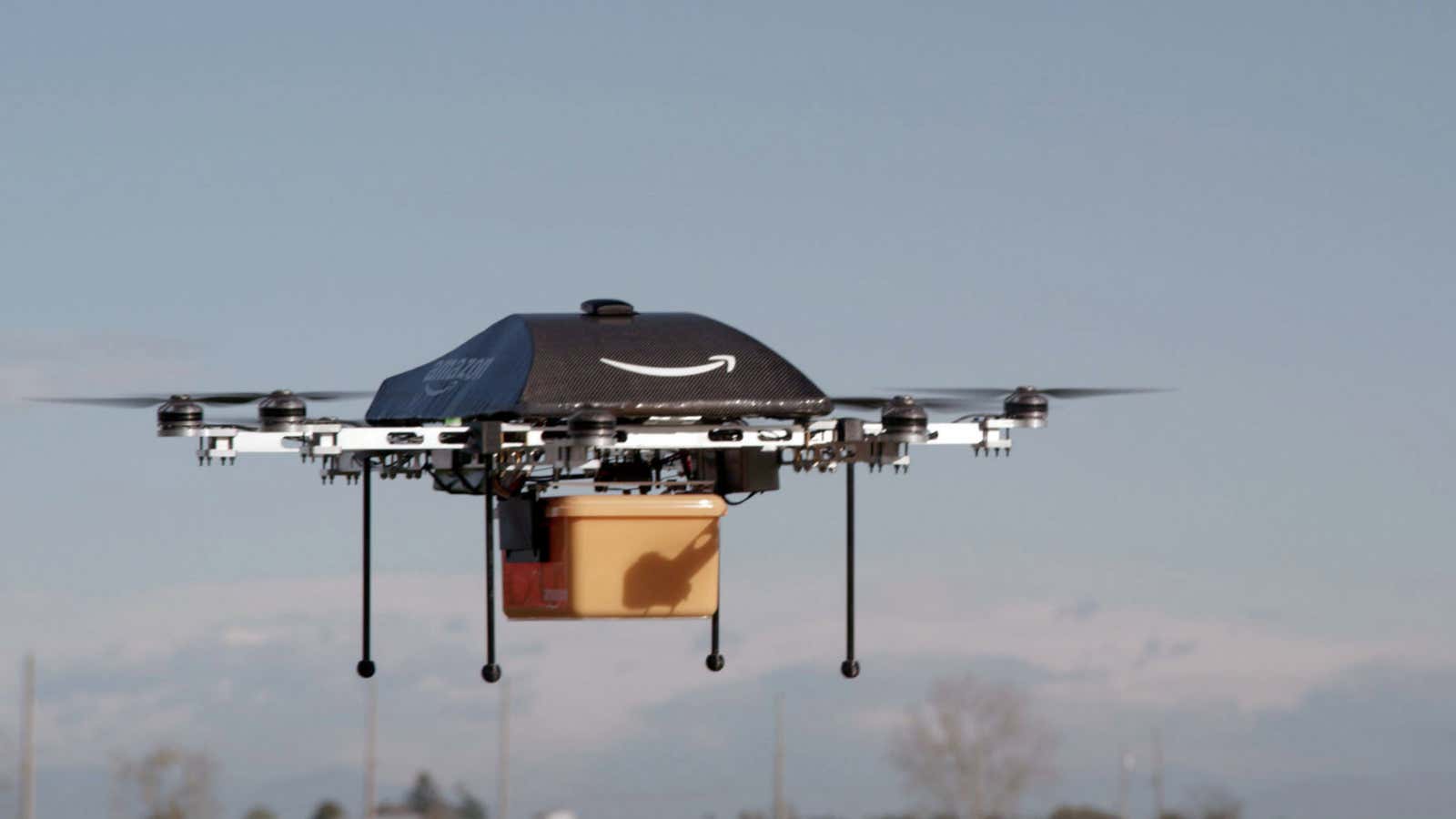“Quite frankly I don’t think I’ve seen more mythology in the press about anything than I have about the e-commerce space over the last year or so,” FedEx chairman and CEO Fred Smith said on the company’s earnings call this morning, when asked whether Amazon could emerge as a competitor to the company.
If you’ve been living under a rock for the past month, you might have missed the news that Amazon plans to introduce deliveries of small packages by drones within the next four to five years. Considerable skepticism remains both about the e-commerce giant’s motives and its ability to carry out this promise. And it appears this skepticism extends to FedEx.
Smith, who founded FedEx in 1970, said there are already two extremely efficient, large-scale transportation networks for moving small, light packages around the US: FedEx and UPS. ”The size and scale of these operations are so big that it’s almost amusing some of the comments about delivering items by drones,” he said.
That, of course, sounds exactly like what every large company has ever said about a small, upstart competitor just before it got swept away by a wave of disruptive technology it had no idea was coming. FedEx, though, claims to be fully aware that drones are coming—and not to be worried at all. FedEx chief investment officer Rob Carter owns a drone, Smith revealed, which so far has only managed to “carry four Budweiser beers at his farm.”
“Now that’s not to belittle UAS [unmanned aerial systems] technology because we’ve got a lot of studies underway in that area ourselves,” he said. “…but at the end of the day [most products will be delivered through] the intercity transportation networks of FedEx and UPS and to a lesser degree the Postal Service, which is designed around delivering very lightweight items.”
“So in certain situations, Amazon.com or some very large E-tailer, they can unquestionably do local deliveries should they choose to do so… but for the vast majority of products moved, it’s almost certain that they will, if they’re going to be delivered, be moved by one of those three large networks.”
